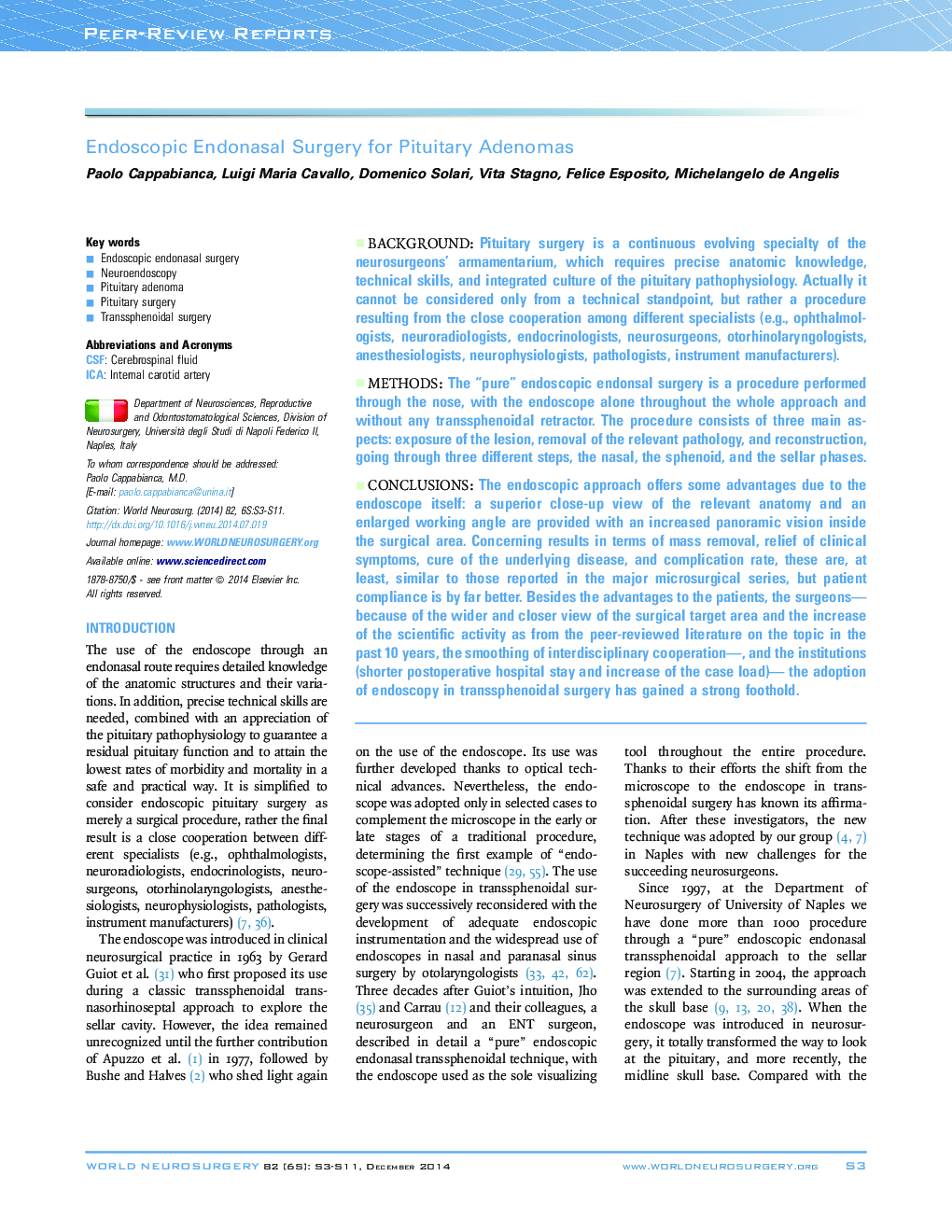| Article ID | Journal | Published Year | Pages | File Type |
|---|---|---|---|---|
| 3095371 | World Neurosurgery | 2014 | 9 Pages |
BackgroundPituitary surgery is a continuous evolving specialty of the neurosurgeons' armamentarium, which requires precise anatomic knowledge, technical skills, and integrated culture of the pituitary pathophysiology. Actually it cannot be considered only from a technical standpoint, but rather a procedure resulting from the close cooperation among different specialists (e.g., ophthalmologists, neuroradiologists, endocrinologists, neurosurgeons, otorhinolaryngologists, anesthesiologists, neurophysiologists, pathologists, instrument manufacturers).MethodsThe “pure” endoscopic endonsal surgery is a procedure performed through the nose, with the endoscope alone throughout the whole approach and without any transsphenoidal retractor. The procedure consists of three main aspects: exposure of the lesion, removal of the relevant pathology, and reconstruction, going through three different steps, the nasal, the sphenoid, and the sellar phases.ConclusionsThe endoscopic approach offers some advantages due to the endoscope itself: a superior close-up view of the relevant anatomy and an enlarged working angle are provided with an increased panoramic vision inside the surgical area. Concerning results in terms of mass removal, relief of clinical symptoms, cure of the underlying disease, and complication rate, these are, at least, similar to those reported in the major microsurgical series, but patient compliance is by far better. Besides the advantages to the patients, the surgeons—because of the wider and closer view of the surgical target area and the increase of the scientific activity as from the peer-reviewed literature on the topic in the past 10 years, the smoothing of interdisciplinary cooperation—, and the institutions (shorter postoperative hospital stay and increase of the case load)— the adoption of endoscopy in transsphenoidal surgery has gained a strong foothold.
